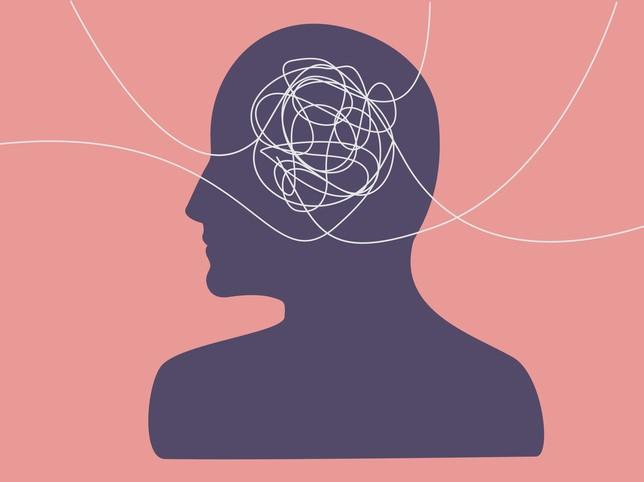The mental challenges and struggles of students and staff in higher education often go unnoticed. But such challenges are an inherent part of personal growth. In her book, Healing the Emptiness: A Guide to Emotional and Spiritual Well-being, the academic and motivational speaker Yasmin Mogahed puts forward the idea that struggles are not punishments but opportunities to rise, heal and grow stronger. Recognising vulnerability as part of that journey creates empathy and support.
Students and staff suffer in different ways. Students transition from the enclosed, cocoon-like environment of school to university life and may struggle to find their footing. Similarly, faculty members have their own personal, social and financial challenges in the cold, hard world of academia.
Often, individuals try to mask their struggles or fill emotional voids with external solutions, such as overworking or isolating themselves, but these fail to address the root causes of their distress. Institutional initiatives aim to promote positivity in overcoming struggles, but they seldom highlight the process of accepting setbacks as a natural part of the journey.
How can we spot those who are struggling and intervene at the right time?
Identifying the signs of struggle
One way to identify struggling staff and students is by observing their sense of belonging in academic or social environments. People who feel unwelcome or judged may avoid group settings, leading to self-imposed isolation. We can see this as a reluctance to participate in activities or form friendships. Their lack of social inclusion amplifies stress and anxiety, creating a barrier to emotional well-being and academic success. They may appear withdrawn, disconnected or out of place – especially when peers form groups that exclude them, further deepening their feelings of inadequacy and alienation.
Some people may even mask their struggles by working excessively hard. They spend countless hours working and studying, yet fail to achieve the expected results. This overcompensation often stems from a lack of confidence or understanding. They may also appear frantic or disorganised, constantly seeking control by requesting extra revisions, frequently inquiring about exam details or persistently probing for potential questions. Such behaviours signal underlying anxiety and highlight their struggle to manage academic challenges effectively.
- How to know when students need mental health assistance
- How to help a student in mental health distress
- Spotlight guide: Student support in the university classroom
Subtle changes in appearance can also provide clues about someone’s well-being. A decline in personal hygiene, grooming or overall presentation can indicate stress, exhaustion or emotional difficulties. Conversely, some people may overly focus on their appearance, using it as a coping mechanism to distract from internal struggles. Both extremes, although easily overlooked, are valuable indicators when combined with other behaviours, offering educators insights into which students could need additional support.
Six solutions to address and support struggling staff and students
Initiate supportive conversations: Begin by observing any behaviour, attendance or class engagement changes that could signal distress. If you sense that someone is struggling, invite them to a private conversation and allow the individual to open up by asking non-judgmental, open-ended questions (for example, “How have you been managing lately?”). This demonstrates genuine concern and empathy, refraining from offering quick fixes or critiques in the initial discussion. A calm, understanding approach can encourage individuals to share their experiences or feelings more freely.
Provide academic and well-being support with ongoing encouragement: Offer help via study tips, administrative guidance or adjusting tasks and deadlines to alleviate academic pressure. If they feel hesitant or overwhelmed by the process, request to assist them with appointment scheduling or provide clear information on accessing these resources. Check in periodically and suggest wellness activities, such as journalling or meditation, to manage stress. You can also help by pairing them with outgoing, responsible peers in group tasks to encourage social interaction, build confidence and support their mental well-being. Regular support and normalising conversation about well-being creates a more inclusive and caring environment.
Collaborate with mental health organisations: Offer a user-friendly online portal where individuals can access mental health support, schedule sessions with therapists, find self-help resources and obtain official documentation for mental health-related leave. Normalising mental health leave policies reduces the stigma around taking time off for mental health reasons.
Reflect on institutional policies: Train faculty members and employees to identify early signs of stress among students and staff, such as declining performance and frequent absenteeism. If more people seem to be struggling, it could mean that institutional policies are contributing to the problem. An anonymous feedback channel can identify policy-related issues, leading to reforms such as workload adjustments, curriculum revisions and relaxation spaces. When institutions genuinely consider feedback, individuals feel valued and meaningful change becomes possible.
Offer group therapy and motivational speakers: Host weekly peer support groups led by trained facilitators, focusing on specific topics such as imposter syndrome, time management, work-life imbalance and stress reduction. These sessions should be structured, confidential and open to students and staff alike to foster shared understanding and solidarity. They remind students and staff that they are not alone in their struggles. Motivational speakers could be invited to share personal anecdotes on overcoming adversity, complementing the ongoing group therapy programmes.
Provide flexible working arrangements: Where feasible, hybrid schedules or remote options help balance work, studies and personal responsibilities. Reducing commute stress boosts energy and focus. While hands-on fields such as medical training require in-person experience, flexibility in other areas enhances well-being and performance.
Higher education institutions have the power not only to identify but also support struggling individuals by promoting empathy, offering practical tools for healing and addressing the systemic roots of stress. In doing so, they can nurture a thriving academic community where both students and staff feel valued and supported, creating a supportive and productive academic community. Ultimately, a thriving academic environment depends not only on academic achievements but on the health and humanity of everyone within it.
Sumbal Riaz is lecturer in biomedical science, and Aqsa Kha and Soha Saifulla are undergraduate medical students, all at Dubai Medical College for Girls.
If you would like advice and insight from academics and university staff delivered direct to your inbox each week, sign up for the Campus newsletter.




comment